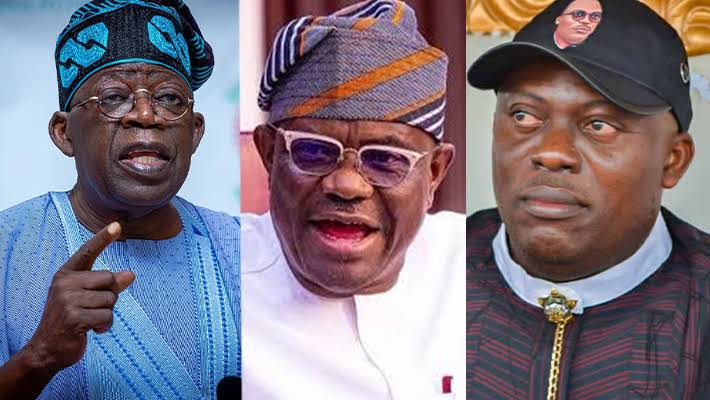A major legal battle is brewing at Nigeria’s Supreme Court as the Federal Government prepares to defend its controversial declaration of emergency rule in Rivers State. The move, which led to the suspension of the state’s governor, deputy governor, and lawmakers, has drawn sharp resistance from 11 governors under the opposition Peoples Democratic Party (PDP), who claim it undermines constitutional democracy.
The emergency declaration, issued on March 18 by President Bola Tinubu, cited mounting political instability, governance breakdown, and security threats in the oil-rich state. In an unprecedented move, the President named retired Vice Admiral Ibokette Ibas as sole administrator to steer the affairs of the state for six months , effectively sidelining all elected officials.
To justify its position before the apex court, the Federal Government has assembled a team of 12 Senior Advocates of Nigeria (SANs) led by former Attorney General of the Federation, Chief Akin Olujinmi. The legal delegation also includes respected figures such as Prof. Kanyinsola Ajayi, Jelili Owonikoko, Kehinde Ogunwumiju, Tijani Gazali, and Babatunde Obama, among others. Supporting the SANs are six additional lawyers, forming one of the most formidable legal teams ever fielded by the state.
Meanwhile, the plaintiffs governors of 11 PDP-controlled states, are challenging the legality of suspending elected officials via emergency powers. In suit SC/CV/329/2025, they argue that the President has no constitutional authority to replace elected state leadership with appointed administrators, citing violations of federal principles and democratic norms.
The governors, represented by their respective Attorneys General, are also questioning whether the National Assembly acted lawfully by endorsing the emergency declaration through a voice vote instead of the constitutionally required two-thirds majority.

In court filings, the PDP governors are seeking an order nullifying the state of emergency as published in Official Gazette No. 47 of 2025 and a perpetual injunction barring similar actions in the future. Their plea underscores what they describe as an “unlawful seizure of state sovereignty” under the guise of federal intervention.
In response, the Office of the Attorney General of the Federation, represented by Chief Olujinmi, submitted a preliminary objection on May 9, arguing that the case does not fall under the Supreme Court’s original jurisdiction. The AGF contends that the plaintiffs have neither demonstrated a specific dispute with the Federation nor established a legal right sufficient to justify the reliefs sought.
Supporting affidavits filed by presidential aide Taiye Oloyede outline a deteriorating political environment in Rivers State, characterized by legislative paralysis, destruction of government property, and threats of violence. Oloyede asserted that the situation had reached a tipping point, with militants allegedly acting with impunity and governance grinding to a halt.
He further alleged that Governor Fubara’s refusal to present a state budget and the demolition of the state assembly complex exacerbated tensions, leaving no choice but for the federal government to intervene “to preserve law and order.”
The National Assembly has also filed a counter-position, asking the court to dismiss the suit and award N1 billion in damages for what it described as a “speculative and frivolous” legal challenge. The legislature argued that the governors lacked the standing to sue and failed to fulfill procedural requirements such as issuing a pre-action notice and obtaining legislative backing from their respective states.
Legal observers are watching the case closely, given its potential to reshape the boundaries of federal intervention and state autonomy under Nigeria’s 1999 Constitution.
The Supreme Court is expected to announce a date for the commencement of full hearings soon.




